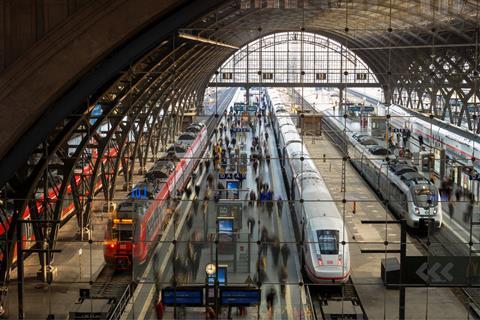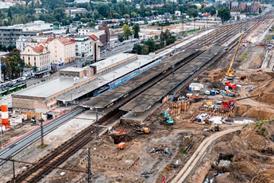
GERMANY: The Federal Audit Office has strongly criticised Deutsche Bahn and the federal government for failing to deal with the national railway’s ‘permanent crisis’, its ongoing financial failings and its inability to cope with operational problems.
In a 33-page report published on March 15, the Office finds that DB is in a ‘chronic crisis’ situation that requires ‘fundamental ‘reforms’. In the four years since the Office last reported on DB, the situation has grown worse with more unreliability and deteriorating finances, the report notes.
‘The four years are obviously wasted’, said Federal Audit Office President Kay Scheller. There are ‘serious structural, financial and operational problems’, he continued, pointing out that the government was a long way from finding a way forward.

The report finds that punctuality of long-distance passenger trains had reached a nadir with every third service delayed. DB was not meeting customers’ demands for punctuality and reliability, and the situation for local services and freight traffic was no better. Much of the blame lay with ageing infrastructure that led to equipment failures and capacity problems.
DB’s economic situation continued to deteriorate with falling income or losses, while DB’s activities outside the domestic railway business tied up management and resources, the report said. Debts had risen from €10bn in 2016 to more than €30bn, with debt continuing to climb by around €5m a day. The ever-increasing financial support from the state amounting to an average of €16∙6bn a year exceeded income from the transport services provided.
All this was damaging the reputation of DB AG. Not only that, but its failure to keep commitments enshrined in slogans such as starke Schiene (strong rail) and Deutschlandtakt (Germany-wide regular-interval service) meant that these were ‘ineffective empty phrases’.
The report also warned that the much-publicised targets of doubling passenger traffic and achieving a 25% market share for freight by 2030 were no longer attainable.
Citing the German constitution’s stipulation that federal government should ensure that the railway infrastructure and rail transport services be provided for the common good, the report calls for federal government to refocus its dealings with DB to:
- develop clear objectives for the railway in line with its constitutional mandate;
- develop the ownership strategy and define what parts of the rail business should be state-owned in the future;
- develop further the structure of the railway system, including how it is controlled and managed; the government should also foster competition in the rail sector;
- ensure that the government can exert influence effectively, which requires a steering group within the Federal Ministry for Digital & Transport that takes account of the government’s role as sole shareholder.

















